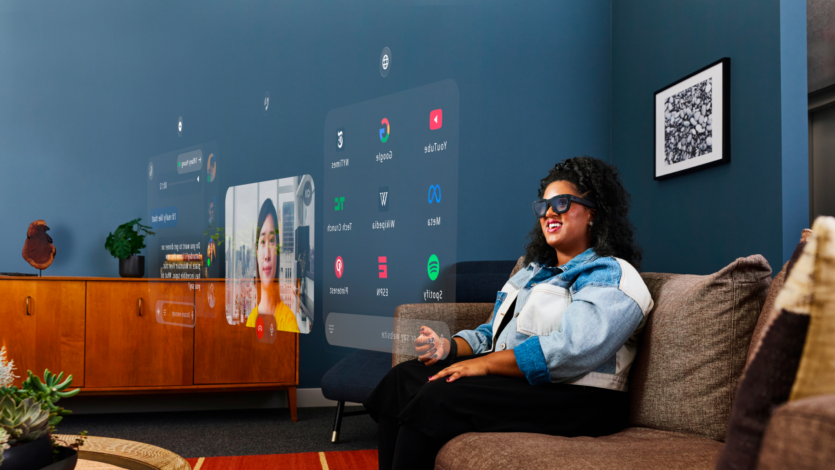
During the Meta Connect event, the company revealed information about its «fully holographic» augmented reality glasses, which it now calls Orion. Meta is putting a lot of technology into this device, which is not yet on the market.
The company first announced 5 years ago that it was developing holographic smart glasses, but it has actually been working on the project for 10 years. Meta claims that Orion is «the most advanced pair of augmented reality glasses ever made», which is the result of «breakthrough inventions in virtually every area of modern computer technology». The device uses miniature projectors to display holograms on the glasses.
The Meta Orion glasses seem much less cumbersome to wear than previous mass-market augmented reality products such as Magic Leap, Microsoft Hololens, and Google Glass. They don’t block the user from the rest of the world like a virtual reality headset (although the Meta headset allows you to see what’s going on around you with the built-in cameras). As a result, others can fully see the user’s face, eyes, and expressions without having to resort to workarounds, as Apple does with EyeSight on Vision Pro.
Meta says Orion is lightweight and works both indoors and outdoors. At the same time, the glasses provide a «digital experience that is not limited by the constraints of a» smartphone screen, as they overlay holographic elements on top of the real world. In addition, Orion integrates contextual artificial intelligence to help the user better understand the world around them.
For example, a user can look inside the fridge with glasses on and have Meta AI come up with a recipe based on what is available. With Orion, you can connect to video calls, view and send messages on Messenger and WhatsApp. The glasses will also feature holographic versions of various other apps, such as Spotify, YouTube, and Pinterest.
The Orion is kept lightweight by using an external wireless unit that does most of the data processing and transfers apps and content to the device. There is also a wristband that you will need to wear for gesture control.
Currently, Meta is testing Orion with employees and «a select external audience». At the same time, Meta maintains that the Orion is not just a research prototype, but instead «one of the most advanced product prototypes we have ever developed and is truly representative of what could be delivered to consumers». The company is continuing to work on this device to improve it and bring the price down.
A roadmap that leaked online last year revealed that Meta plans to release its first consumer augmented reality glasses in 2027, although the company says it aims to do so «in the near future».
Source: Engadget



Spelling error report
The following text will be sent to our editors: